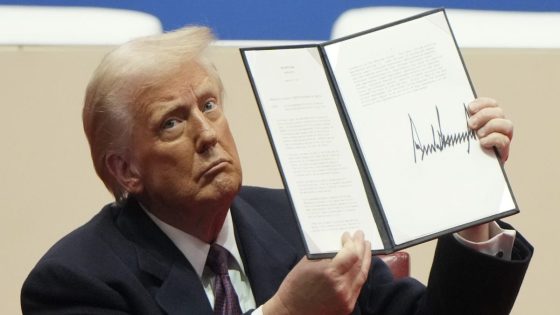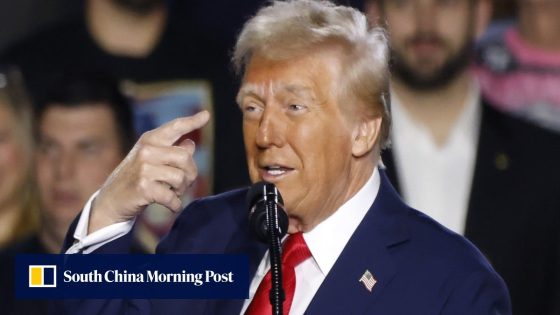On January 22, 2025, President Trump signed a series of executive orders aimed at reshaping various American institutions. These actions are part of his broader strategy to implement significant policy changes early in his second term.
- Tracking Trump's executive orders and deadlines.
- Second term begins with sweeping actions.
- Concerns over ICE raids nationwide.
- Reshaping American institutions through orders.
- Policy directive issued to Secretary of State.
The executive orders include deadlines that the administration is now tracking closely, raising concerns among citizens and advocacy groups about potential impacts on immigration enforcement and other areas.
President Trump’s recent executive actions mark a decisive moment in his administration’s approach to governance. With 42 new orders signed within days of taking office, he aims to fulfill campaign promises and reshape key aspects of federal policy. The focus appears to be on immigration enforcement and regulatory reforms that align with his “America First” agenda.
Key details surrounding these executive orders include:
- The implementation of stricter immigration controls.
- A push for deregulation across various sectors.
- Deadlines established for agencies to comply with these directives.
The swift signing of these orders has sparked debate among lawmakers and advocacy groups. Critics express concern over the potential for increased ICE raids and the impact on immigrant communities nationwide. Supporters argue that these measures are necessary for national security and economic growth.
This wave of executive actions reflects Trump’s intent to leverage presidential power effectively as he navigates challenges both domestically and internationally. As developments unfold, stakeholders will be closely monitoring the implications of these decisions on American society.
The recent executive orders by President Trump signify a critical shift in U.S. policy direction as he seeks to implement sweeping changes early in his presidency. The administration’s focus on deadlines highlights its commitment to rapid execution but also raises questions about accountability and oversight moving forward.





























